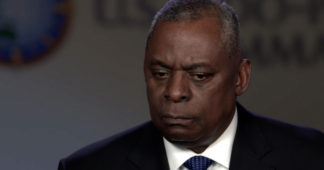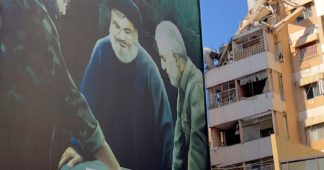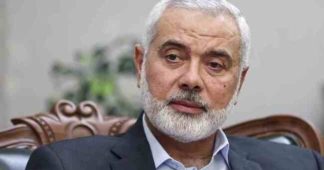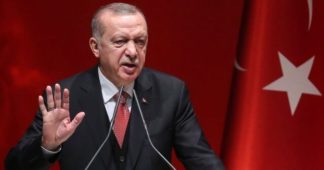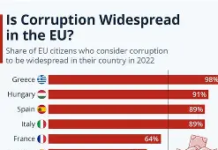After Israel carried out assassinations in Lebanon and Iran, the prospect of war looms over the Middle East.
By James Bamford
Aug 9, 2024
Last Saturday, in the early afternoon, the massive US nuclear-powered supercarrier USS Theodore Roosevelt sailed slowly from the Gulf of Oman north into the narrow channel of the Strait of Hormuz. Appropriately nicknamed “the Big Stick,” it was on its way to the Persian Gulf, where it will take aim, like a primed and loaded cannon, directly at Iran. That was the same place it saw action during the Gulf War against Iraq in 1991, supporting aircraft that dropped nearly 5 million pounds of bombs on the country. Now back, it’s once again cocked, loaded with fighter jets, and ready for another bloody war, while escorted by heavily armed destroyers, cruisers, and submarines. To provide additional support for the Roosevelt, last Saturday Defense Secretary Lloyd Austin also ordered to the region the nuclear carrier USS Abraham Lincoln, along with its battle fleet of fighters, destroyers, and cruisers armed with both offensive and defensive ballistic missiles.
But this time it would be different. Instead of a war to rid the region of a brutal Iraqi dictator, it would be a war risking American lives and spending billions of American dollars to support a brutal Israeli prime minister—one facing multiple felony charges in an Israeli court, and numerous war crimes in The Hague. The catalyst for what many fear could soon become a new and deadly regional war was Israel’s recent dual assassinations. The first, in Beirut’s southern suburbs, targeted Fouad Shukr, a senior Hezbollah commander and adviser on military affairs to Hasan Nasrallah, secretary-general of Hezbollah. Also killed was an Iranian military adviser along with three women and two children; at least 74 people were injured.
About a day later, Israel carried out another assassination, this one in Tehran and directed at Ismail Haniyeh, the man leading the negotiations on behalf of Hamas to bring a ceasefire to the long war in Gaza. As the group’s political leader, much of Haniyeh’s extended family had been killed by Israeli soldiers, and now he was among them. For Israeli Prime Minister Benjamin Netanyahu, the murder of Haniyeh, in the works for months, was a big win. Since the start of the war, the Israeli leader had found every opportunity and excuse to delay and frustrate the ongoing peace talks so he could to continue the war. “The prime minister has recently foiled the chances of achieving a deal, in part by toughening Israel’s positions in the latest negotiations after Hamas had shown a certain amount of flexibility,” noted Haaretz last week.
Now with the opposing negotiator eliminated, there was nothing standing in the way of his total annihilation of the Palestinian population in Gaza. “How can mediation succeed when one party assassinates the negotiator on the other side?” asked Qatari Prime Minister Mohammed bin Abdulrahman Al-Thani, who had been heavily involved in the talks. Thus, unimpeded by negotiations, the carnage continued. On Sunday Israel unleashed brutal strikes on two schools in Gaza City, where thousands of displaced persons were sheltering, killing at least another 30 Palestinians. An eyewitness to the attack, Osama Labad, told The Washington Post that women and children were among the dead and injured.
On Saturday, Iran informed Arab diplomats that “it didn’t care if the response triggered a war,” reported The Wall Street Journal. Should his decision to murder Haniyeh spark a bloody regional war, Netanyahu was confident that the US would, as always, come to Israel’s defense. “Our support for Israel’s security is ironclad and unwavering against all Iran-backed threats, including Hezbollah,” a State Department spokesperson said, almost robotically.
In fact, the Carnegie Endowment’s Michael Young believes that the rapid one-two timing of the double assassinations “strongly suggests that Benjamin Netanyahu may be trying to railroad the United States into a military confrontation with Iran.” Just prior to the assassinations, Iran’s new reformist president, Masoud Pezeshkian, had been seeking to improve the country’s relations with the West, something very worrisome to Netanyahu.
Continue reading at archive.is
We remind our readers that publication of articles on our site does not mean that we agree with what is written. Our policy is to publish anything which we consider of interest, so as to assist our readers in forming their opinions. Sometimes we even publish articles with which we totally disagree, since we believe it is important for our readers to be informed on as wide a spectrum of views as possible.
